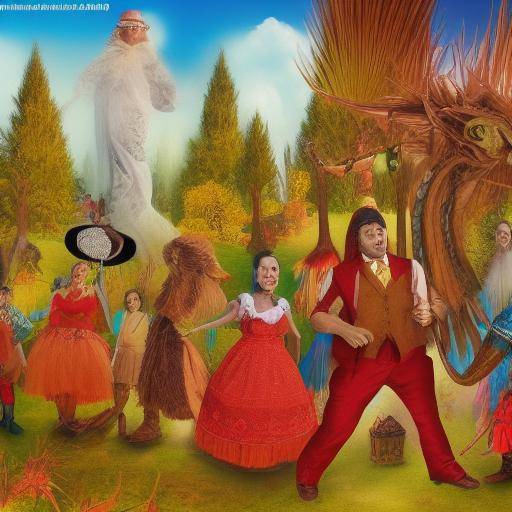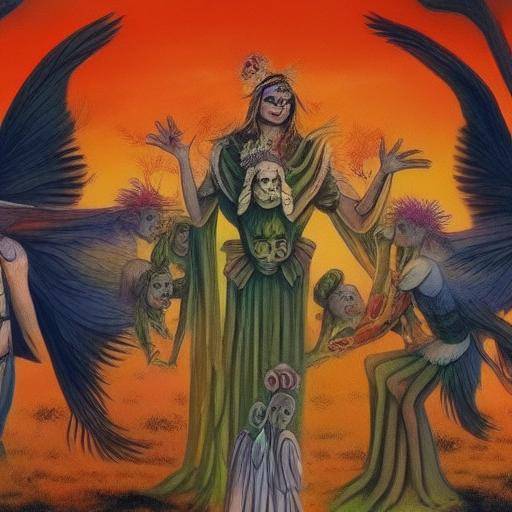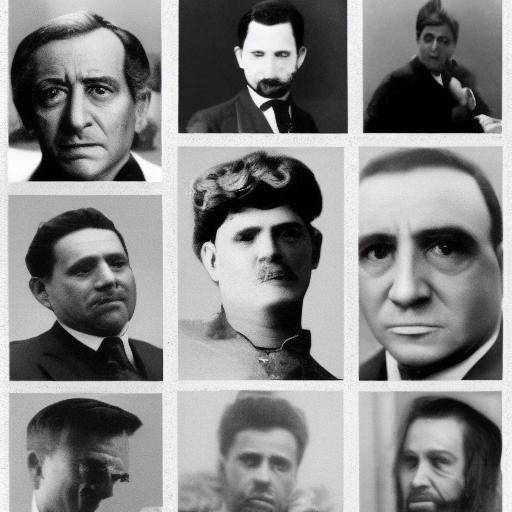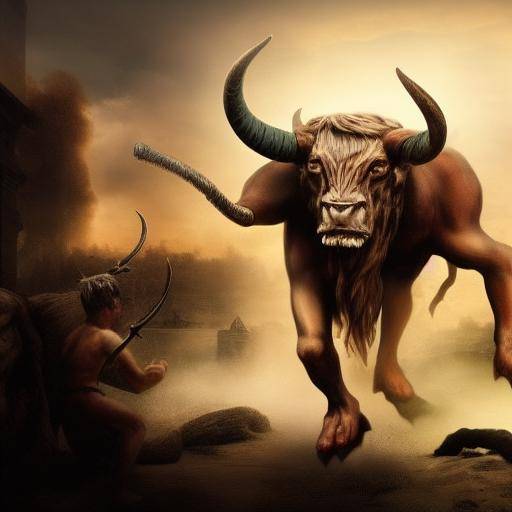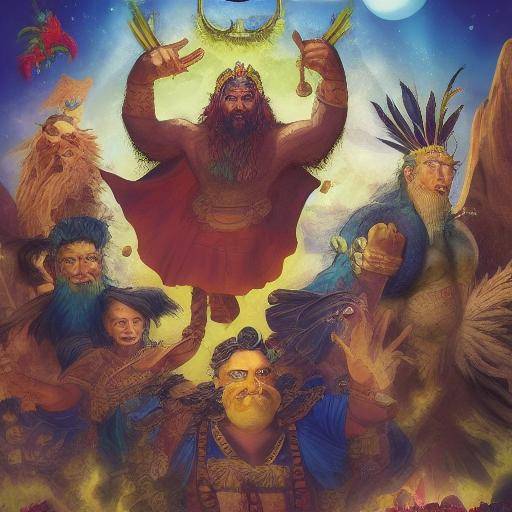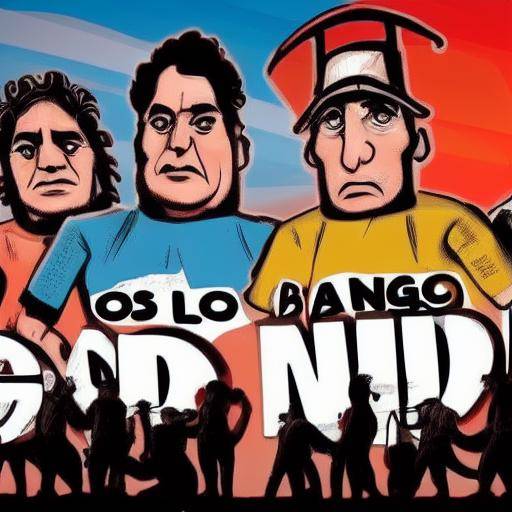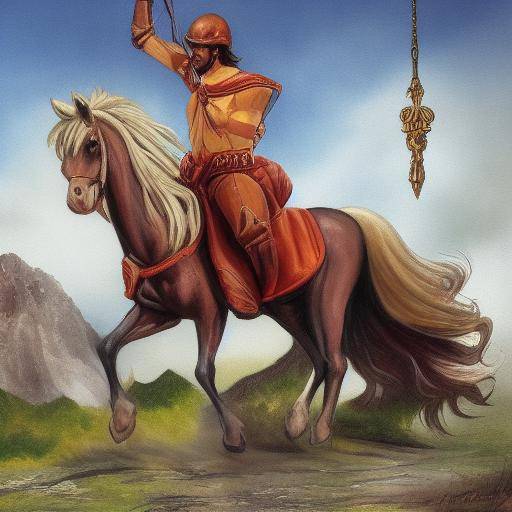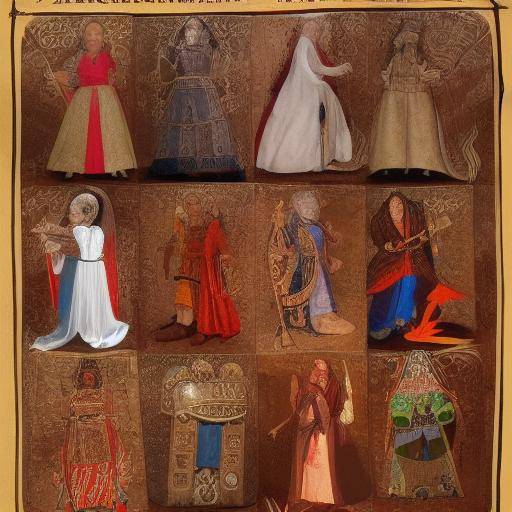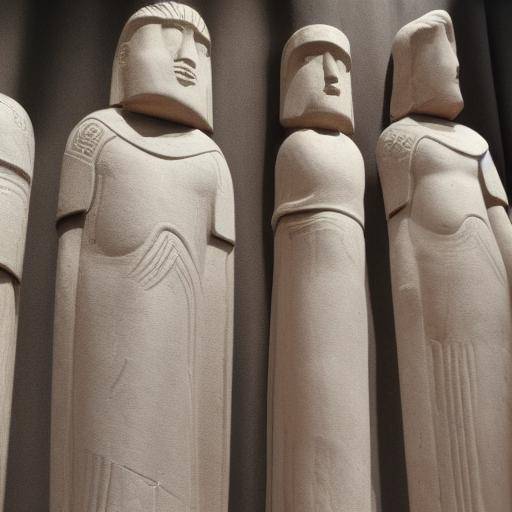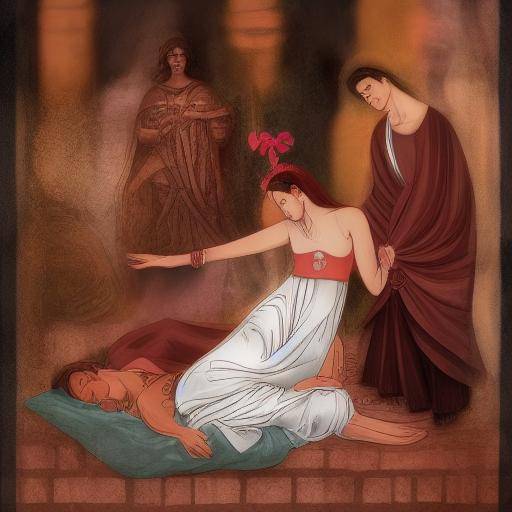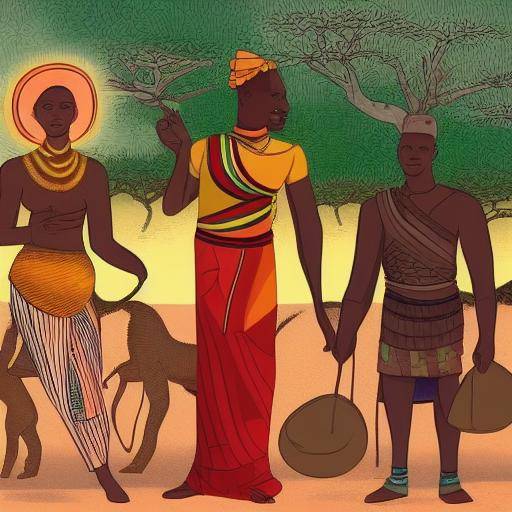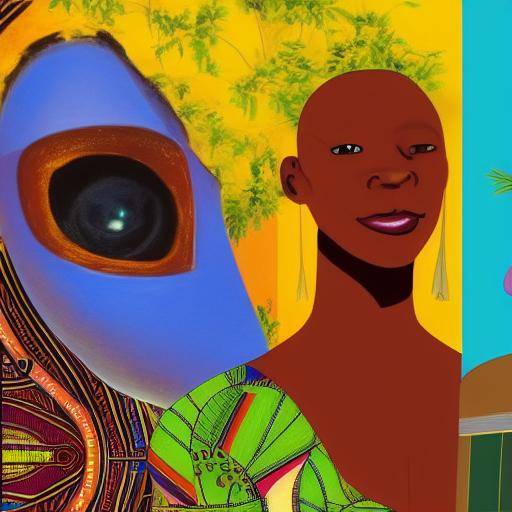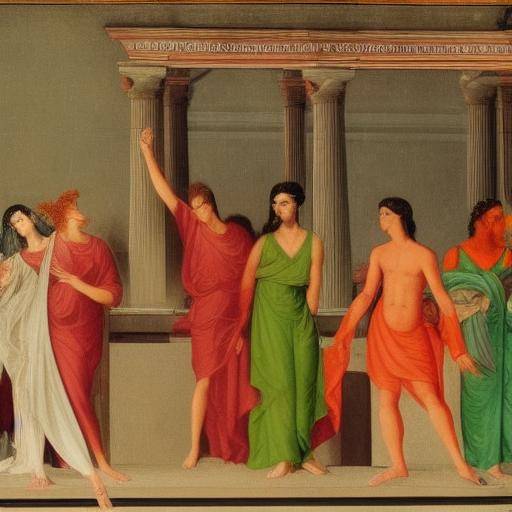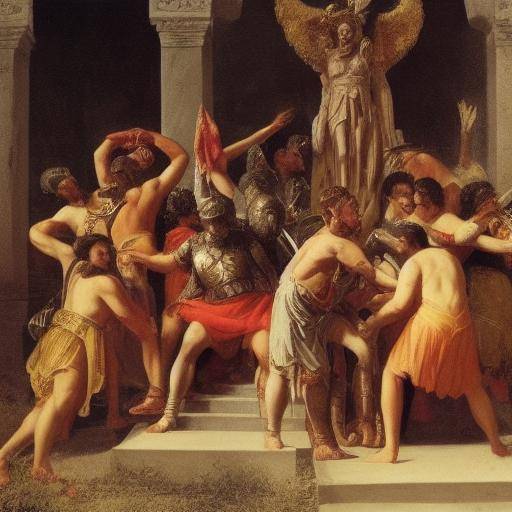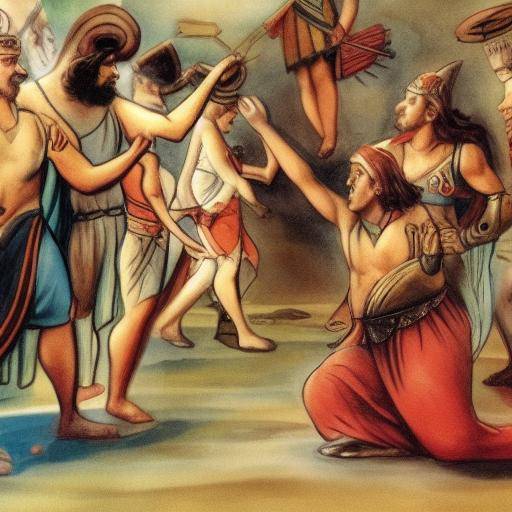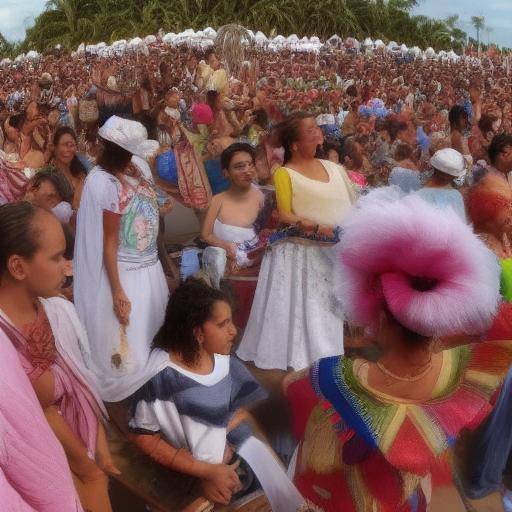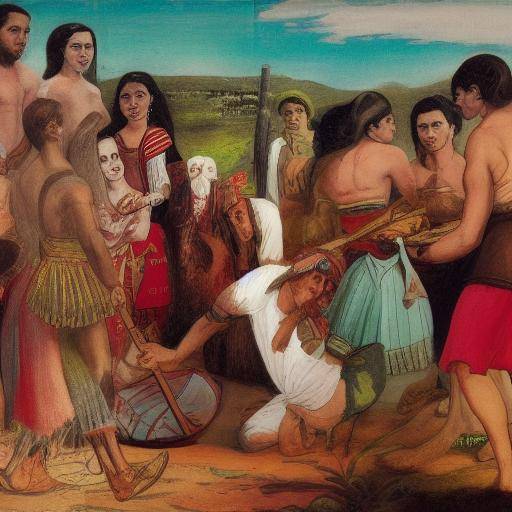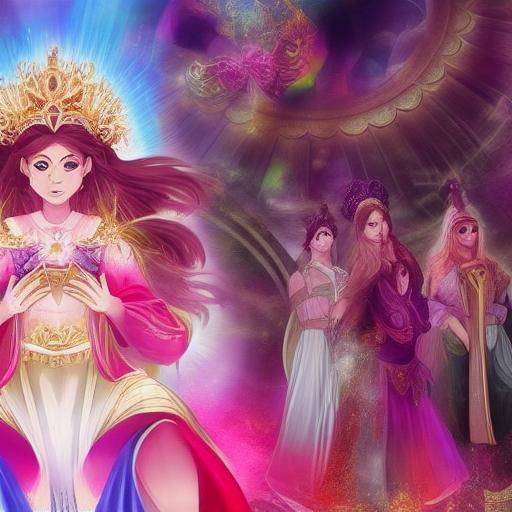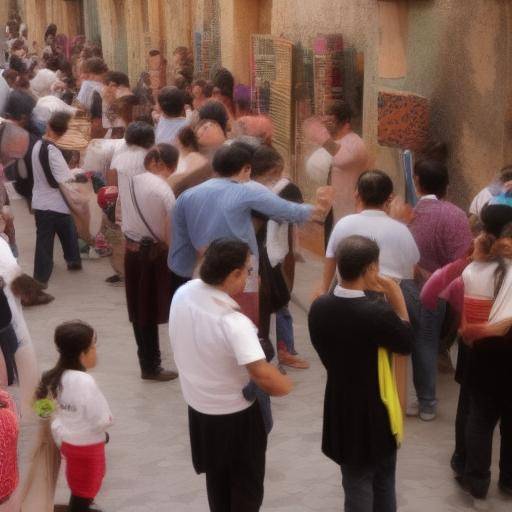
Introduction
Hindu culture is rich in ancient traditions and spiritual practices that have fascinated the world for centuries. Among these practices, mantras occupy a prominent place. These powerful words or sounds have a profound meaning in Hindu culture and mythology. In this article, we will thoroughly explore the meaning of mantras in Hindu culture, their history, their impact on everyday life, and how they relate to mythology.
History and Background
Mantras have a remote origin in Hindu culture, re-assembling thousands of years ago. These powerful words or sounds are derived from the Vedas, ancient sacred texts of India. Throughout history, the mantras have evolved and branched into different spiritual and religious practices.
The first recorded use of mantras in Hindu culture dates back to the Vedic times, where they were used in religious rituals and worship ceremonies. Over time, mantras practice expanded to various Hindu philosophical schools, such as yoga and meditation. Mantras are believed to have intrinsic power to transform consciousness and connect with the divine.
In Hindu mythology, mantras also play a significant role. It is said that the gods and goddess of the Hindu pantheon used mantras to gain supernatural powers and overcome demons. Mantras were considered a spiritual tool for protection, healing and enlightenment.
Analysis in Deep
Mantras are an integral part of Hindu culture and are used in a wide range of contexts. From the recitation of mantras in religious practices to their use in meditation, these sacred sounds have a profound impact on the daily lives of millions of people in India and around the world.
In Hindu culture, mantras are appreciated for their benefits to the mind, body and spirit. Mantras have been shown to have soothing effects on the nervous system, reducing stress and anxiety. Furthermore, it is believed that the mantras have the power to purify the mind and soul, helping practitioners to achieve a state of inner peace and mental clarity.
Despite their benefits, mantras' practice also presents challenges. Some people find it difficult to concentrate during mantras recitation, which can hinder their ability to fully experience the benefits. Moreover, the precise pronunciation of mantras and the understanding of their meaning are crucial aspects to experience their transformative power.
Comprehensive review
In everyday life, mantras are used in a variety of situations. From religious ceremonies to personal practice, mantras have a significant impact on contemporary Hindu culture. In addition, the presence of mantras in music, art and cultural expressions demonstrates their influence in Indian society.
Mantras also have a prominent place in yoga practice, where they are used to focus the mind and raise awareness. Yoga practitioners often recite mantras as part of their spiritual practice, using the power of these sacred words to deepen their connection to the divine.
In terms of best practices, spiritual teachers and religious guides play a crucial role in teaching the right pronunciation and meaning behind the mantras. These spiritual leaders provide guidance and wisdom to those who seek to understand and harness the power of mantras in their lives.
Comparative analysis
When mantras are compared to Hindu culture and mythology, profound similarities and connections are revealed. The presence of mantras in Hindu epopeyas, such as Ramayana and Mahabharata, highlights the intrinsic importance of mantras in Hindu mythology. The heroes and semi-gods of these epopeyas used mantras to invoke divine powers at times of battle and tribulation, which illustrates the lasting relevance of the mantras in Hindu culture.
Practical Tips and Accessible Tips
For those interested in exploring mantras in Hindu culture, it is crucial to understand the pronunciation and meaning of mantras. The guidance of a Sanskrit expert or a spiritual leader can be invaluable in learning to recite mantras effectively and meaningfully. Furthermore, the incorporation of mantras recitation in the daily practice of meditation can bring calm and focus to the mind.
Reciting mantras with devotion and understanding of meaning is essential to experiencing the fullness of their transformative power. Using a quiet and sacred environment for recitation, such as a temple or a special corner in the home, can also enhance the connection with the mantras and their spiritual meaning.
Industry ideas and Expert Reviews
According to spiritual and academic leaders, the knowledge and practice of mantras in Hindu culture are fundamental to spiritual growth and emotional well-being. Experts encourage people to explore the spiritual wealth of mantras as a way of connecting with the divine and cultivating a sense of inner peace.
In addition, scholars of religions and mythology underscore the lasting influence of mantras in Hindu culture, and their continued relevance in contemporary life. This approach in mantras as vehicles of spiritual and mental transformation reflects the profound heritage and validity of mantras in Hindu culture.
Case Studies and Real Life Applications
Mantras in Hindu culture have daily applications ranging from recitation in religious ceremonies to their use in music and dance. Hindu festivities often include the recitation of mantras as part of religious rituals, demonstrating their importance within community life.
In addition, many yoga and meditation practitioners around the world incorporate mantras into their personal practice, using these powerful words to focus the mind and raise awareness. This application to real life reflects how mantras remain an integral part of Hindu culture and its influence in a global context.
Future Trends and Predictions
As global awareness of spiritual practices and search for inner well-being continues to grow, mantras in Hindu culture are expected to continue to attract interest and adoption around the world. The influence of mantras on popular culture and their connection to spirituality and emotional well-being promise to maintain their relevance in the future.
Moreover, as global technology and connectivity bring people from different cultures closer together, the diffusion and understanding of mantras in Hindu culture can be expanded to more diverse audiences. This could result in greater appreciation and application of mantras as tools of inner peace and spiritual connection.
Conclusion
In short, the mantras have a profound meaning in Hindu culture, rooted in a millennial history and a close connection with mythology. From their role in religious practices to their influence in everyday life, mantras remain an integral part of India's spiritual heritage and a source of healing and connection for millions around the world.
For those who seek to understand more deeply the meaning of mantras in Hindu culture, to explore their practical application and their impact on contemporary society can reveal new layers of wisdom and spiritual meaning.
Frequently asked questions
What is the purpose of reciting mantras in Hindu culture?
The recitation of mantras has several purposes in the Hindu culture, which include the spiritual connection, the purification of the mind and body, the search for protection and the raising of consciousness. Mantras are considered a path to inner peace and spiritual realization.
What is the meaning of mantras in Hindu mythology?
In Hindu mythology, mantras are considered the sacred sounds that possess a divine power. The gods and goddesses used mantras to gain supernatural powers, protection and victory over demons. Mantras were also used as spiritual tools for healing and enlightenment.
What is the importance of mantras in yoga and meditation?
In yoga and meditation, mantras are used to focus the mind, raise awareness and connect with the divine. The recitation of mantras during spiritual practice helps to calm the mind and facilitate concentration, which fosters inner peace and mental clarity.
How can I learn to recite mantras effectively?
To learn how to effectively recite mantras, it is advisable to seek the guidance of a Sanskrit expert or a spiritual leader who can teach the correct pronunciation and meaning behind mantras. Regular practice and understanding of the essential meaning of mantras are fundamental to experiencing their benefits.
What is the role of mantras in music and cultural expressions in India?
Mantras have a significant influence on Indian music and cultural expressions. The presence of mantras in music and dance reflects its integral importance in spiritual and creative expression. In addition, mantras are recited as part of religious celebrations and festivities, enriching the cultural life of India.
How have mantras evolved throughout India's history?
Throughout the history of India, mantras have evolved from their use in ancient religious rituals to their incorporation into contemporary spiritual practices such as yoga and meditation. The evolution of mantras reflects its continuing relevance in Indian society and its adaptation to changing spiritual needs.
In short, the mantras in Hindu culture represent an ancient tradition that remains relevant in modern life, offering a deep connection with the divine, inner peace and spiritual realization. As global awareness of spiritual practices continues to grow, mantras in Hindu culture promise to continue to inspire and transform lives around the world.


